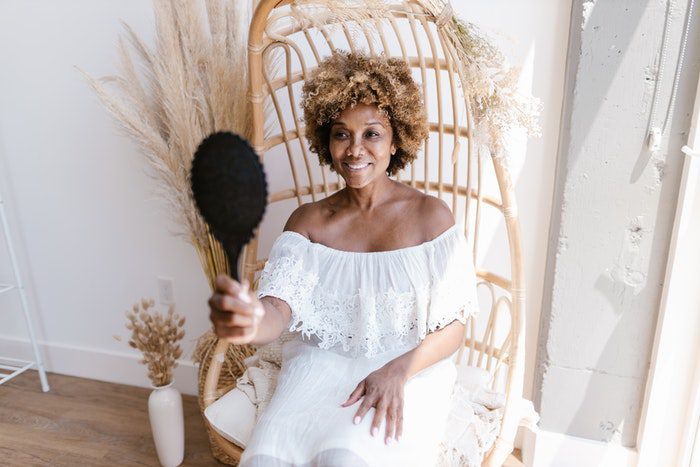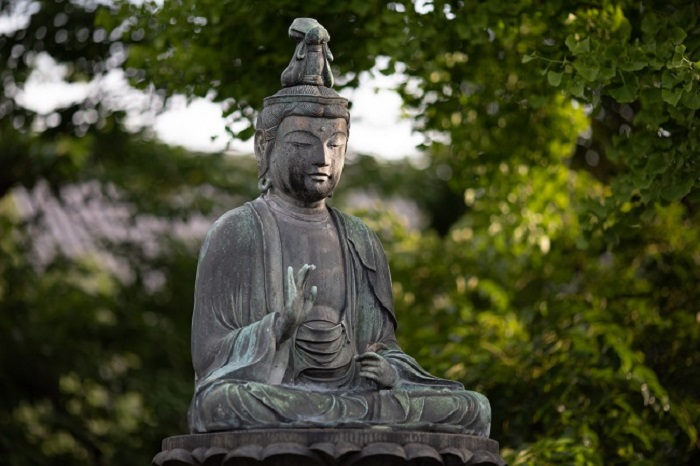“No regrets” doesn’t mean living with courage, it means living without reflection. To live without regret is to believe you have nothing to learn, no amends to make, and no opportunity to be braver with your life.”
– Brené Brown
Regret is your key to personal growth. That’s because regret is your teacher. Admittedly, regret is a tough teacher. She’s the teacher who embarrasses you in front of the class. She’s the teacher who puts a big red F on your paper. But without regret, you won’t improve as a human being. Because you won’t know what it is that you need to fix about yourself.
Admittedly, it’s uncomfortable to have regrets. I know this for a fact because I have more regrets than I can count. How do I know that? Well, I actually tried to count them the other day. And I realized that they were endless. I had big regrets, like getting married prematurely when I was young. And not spending more time with my mother before she passed away. I also had small regrets, like the birthday cards that I’ve forgotten to send. My regret list is long!
But even though my regrets are uncomfortable, I also know that it’s far better to have them. That’s because I know people who don’t have regrets. They live a regret-free life by doing the worst thing possible – they justify their behavior. “Yes, I hurt that person. But I was unhappy.” Or, “I know I should have spent more time with my kid when he was growing up. But I was just too busy.”
You can’t become a better person if you justify your mistakes. The only way to grow as a human being is to regret your mistakes, figure out why you made them, and then try to do better in the future. That is what personal growth is all about!
Below are ways to use your regrets as a tool for personal growth. Follow these approaches and see how much wiser, kinder and more compassionate you can become!
Use Your Past Mistakes to Figure Out How You Can Improve
If you want to improve as a human being, your past mistakes are your guide. That is because we make mistakes due to our character flaws. And our past mistakes shine a light on what those flaws are.
For example, when I was a young person in my twenties, I wasn’t confident in myself. Looking back, that doesn’t make a lot of sense, because I was an attractive, well-educated young lady. I had everything going for me. But the world is a tough place. And the occasional unkind comment would easily undermine my confidence.
So, I made mistakes. I took jobs that weren’t good for me career-wise. I entered into relationships with young men who weren’t right for me. And it was all because I lacked confidence.
However, when I took a hard look at my life and my mistakes, it became readily apparent that I’d made those mistakes due to a lack of confidence in myself and my abilities. And once I figured out why I’d made those mistakes, I was able to attack my character flaw – insecurity.
I quickly figured out that my being insecure was silly. I came to realize that I was quite happy with the package of looks, intellect and personality that’s uniquely me. In short, I figured out that I liked myself – a lot. So, if others liked me, great! And if other people didn’t like me, that was OK too! When I became confident in myself, the opinions of others just stopped mattering to me.
So, use your regrets to take a hard look at yourself. Figure out why you’ve made mistakes. Consider whether you may have a character flaw that you need to work on. Then attack it! Use your regret to change your character for the better.
Reflect on Your Regrets to Improve Your Current Relationships
Not one of us is perfect. We’ve all said and done things that have hurt other people. That’s regrettable. It doesn’t matter why you hurt someone else. If you hurt another person, it’s objectively wrong.
However, the key to personal growth isn’t to beat yourself up when you’ve made a regrettable mistake and hurt another person. That’s pointless. It doesn’t help you, and it doesn’t help the person you hurt. The key is to figure out why you did it, and then work to fix your behavior.
For example, in the later stages of my mother’s life, she began exhibiting signs of dementia. Of course, I didn’t know that at the time. So, when she did and said outlandish things, I became frustrated and impatient with her. But when a medical practitioner explained to me that she had dementia, I took a hard look at myself and my behavior. And, of course, I regretted having been so irritable.
But after feeling regret, I took my self-analysis a step further. I tried to figure out why I’d been so frustrated and impatient. I realized that I was frustrated and impatient out of fear. My fear was that my mother’s mind was declining. And beneath that fear was the fear that she was becoming truly elderly and someday would die. Once I figured out the root of my impatience, it was much easier for me to be the very thing that I wanted to be – patient and kind.
So, having regrets can be a good thing. They can force you to take a deeper look at yourself and what’s driving your behavior. When you do so, you can make the necessary changes in how you behave, so that you can be truly kind and compassionate to all those who you encounter.
Use Your Regrets to Be Braver
Sometimes we have regrets for the paths we didn’t take in life. And unfortunately, sometimes we don’t take certain paths out of fear. We may fear failure. Or we may be afraid that if we take a certain path others won’t approve of us. There are a multitude of fears that keep us from doing what we need to do to live a happy life.
For instance, when I was growing up, my parents didn’t have a lot of money. I almost never received a birthday present. Christmas likewise was very modest. And given that my parents had so little, once I was old enough to work, I started buying my own clothes. As a result, I ended up having a funny relationship with money and was always cautious about spending money on myself.
That inhibition trailed me through adulthood. So as an adult, whenever there was something that I wanted for myself, I would come up with a million reasons as to why I shouldn’t get it. I easily could be generous toward others, but being generous toward myself was incredibly hard.
But at a certain point in my life, I took some time to try to figure out why I ran myself ragged doing things for others, but I hesitated to do anything for myself. And I realized that I hadn’t been taught to be good to myself or to spend money on myself. Rather, I was waiting for permission from others to be good to myself!
Once I figured that out, I became braver and started doing things for myself. I’ll admit that I’m still more comfortable doing things for others. But these days, I force myself to occasionally do things that just benefit me. And that makes me a lot happier!
So, if you have regrets over paths not taken in life, step back and figure out why you didn’t take those paths. Then use that self-knowledge to be brave enough to take new, exciting paths in the future!
Use Your Past Mistakes to Develop Compassion for Others
Regrets are important teachers because they not only teach us about ourselves, but they also can inspire us to be more compassionate and less judgmental toward others. After all, it’s hard to criticize the speck in someone else’s eye, when you have a big log in your own.
In fact, every time I start to feel judgmental or self-righteous, I remind myself of my own many sins and mistakes. That simple exercise pulls me back in line. It quickly reminds me that not one of us is perfect. I then am able to look at the situation with a fresh perspective.
When I consider my own regrets, I often ask myself this question: “How do I like to be treated when I make a mistake?” Well, I like to be treated with compassion and forgiveness. And if I like to receive compassion and forgiveness when I err, why would I not extend the same to others?
So, regret is a tough teacher. Just when we start to think that we are better than everyone else, regret reminds us that we are just as imperfect as our neighbor. As a result, the right response to the mistakes of others is not to judge. Rather, it’s simply to show compassion.
If you are seeking to grow in emotional maturity and wisdom, consider regret to be your best teacher. Regrets don’t need to weigh us down. Rather, they can be to our benefit and can truly be the key to our personal growth. (To read about healing your mind from the past, click here.)








